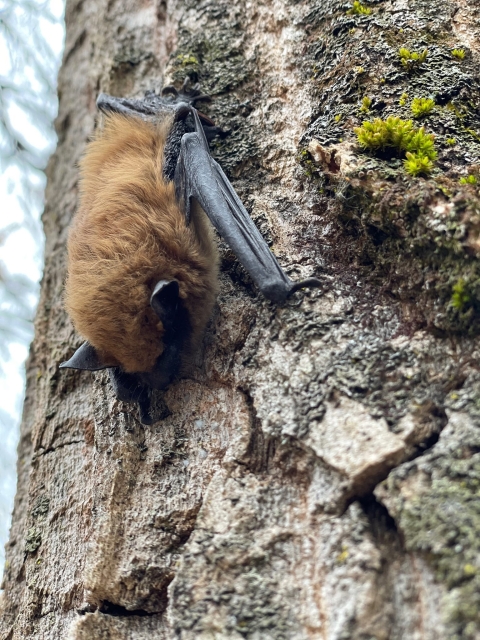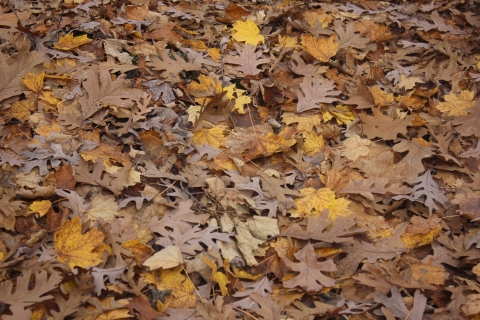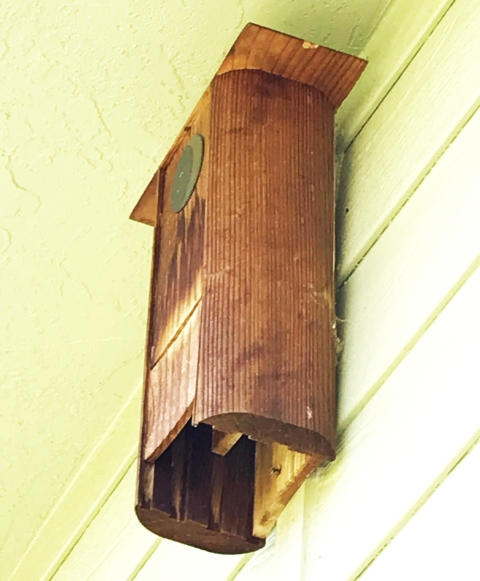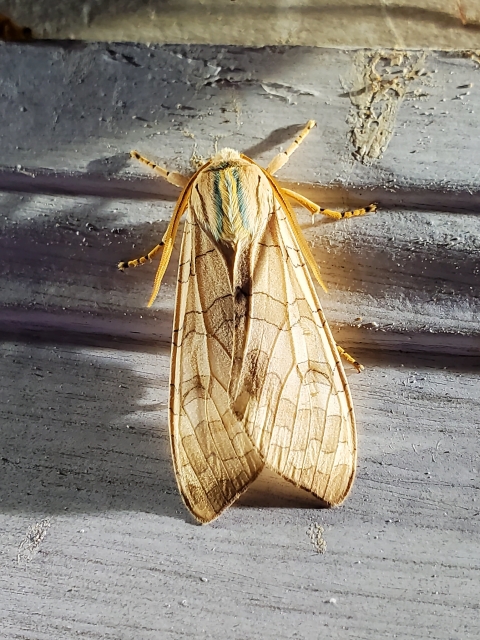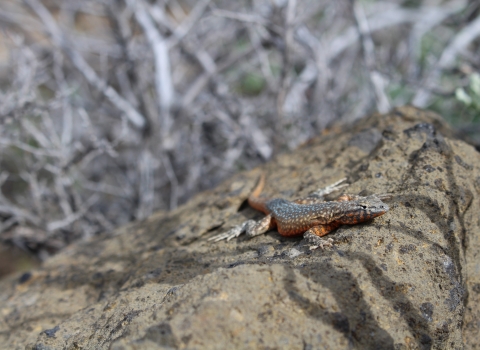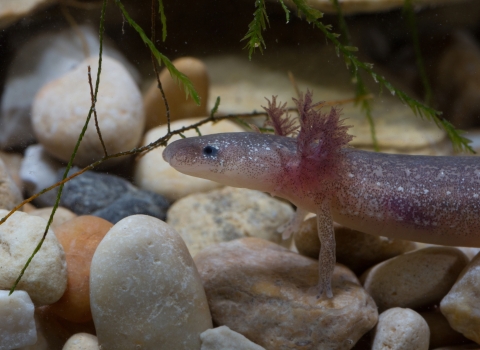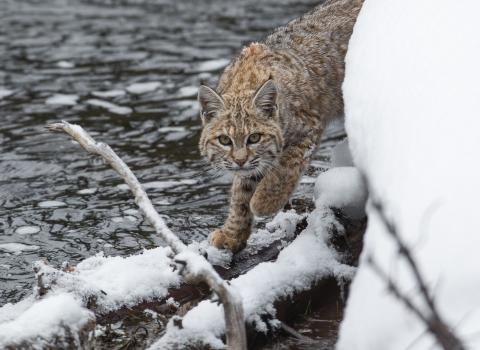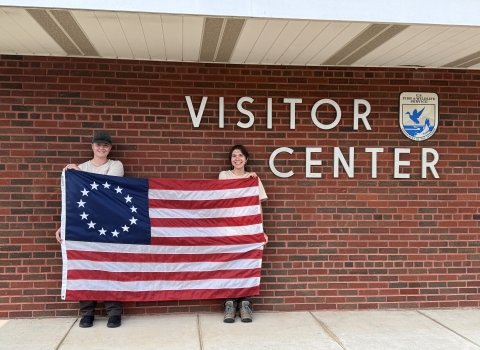Bats get a bad rap and we need your help dispelling myths about these fascinating and beneficial animals. They are nature’s insect control, keeping mosquito populations in check as well as pests that eat your garden plants. Learn more about bats and how you can make your home a healthy and safe home for them too. From there, you can share what you learn with family and friends.
Create a water feature in your yard to provide a home and drinking water for wildlife.
When you provide a valuable water source, you also offer a breeding place for bugs, which make a great food source for bats! Support bats even more by preserving wetlands in your area.
Downed logs and dead snags provide bountiful habitat for all kinds of wildlife, including bats!
Bats sleep during the day behind loose bark or inside tree cavities. Birds and small mammals find shelter inside cavities too. Many insects, live in the dead wood or inside cavities, which provide more food for bats. If well planned and maintained, downed logs and dead snags can also be a visually pleasing feature to your landscaping.
Leave leaf litter and provide the damp, protected habitat many creatures need!
In turn you will help create places for bugs to hide. A number of creatures, including bats, love eating the many bugs that live in the leaves.
Installing a bat house is a quick and easy way to provide shelter for local bat species.
Bats pay back their rent by controlling mosquito and garden pest populations in your yard. They convert their meals into bat guano, which makes for a fantastic natural fertilizer!
- Learn how you can Create Your Own Bat House
- Check out these tips for the best way to Install a Bat House
All of Oregon’s native bats are insectivores, which means the only thing on their menu is bugs!
Here’s how you can keep the food coming for bats:
- Start by choosing to not use pesticides, or use less toxic forms of insect control
- Landscape with a rock or wood feature which provides hiding places for bugs
- Plant native plants for native insects
- There’s no need to mow everything - leave “wild” zones in your yard for insects to hide and thrive
- Night pollinators feed bats, so grow flowers and plants that give these insects food at night
Learn More: Backyard Bugs Flyer
Outdoor cats are one of the biggest dangers to native wildlife!
Billions of wildlife species around the world are killed each year by free roaming cats, including bats. Native wildlife, like coyotes and raccoons, can also put your outdoor cat in harm’s way. To protect native wildlife and your cat, keep your furry friend indoors or build a protected catio.

